QuizAx - Worldwide Quiz Duels With Real People!
Experience the thrill of multiplayer quiz games with our app, where you can challenge friends and players worldwide in real-time trivia battles.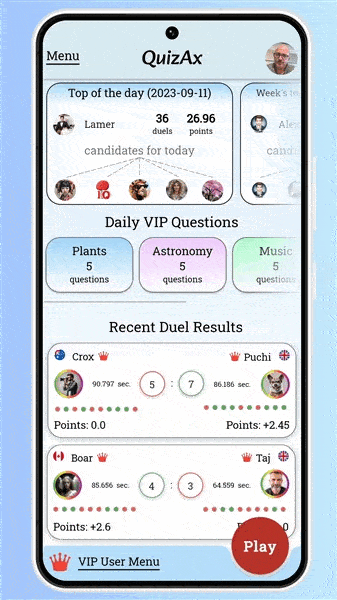
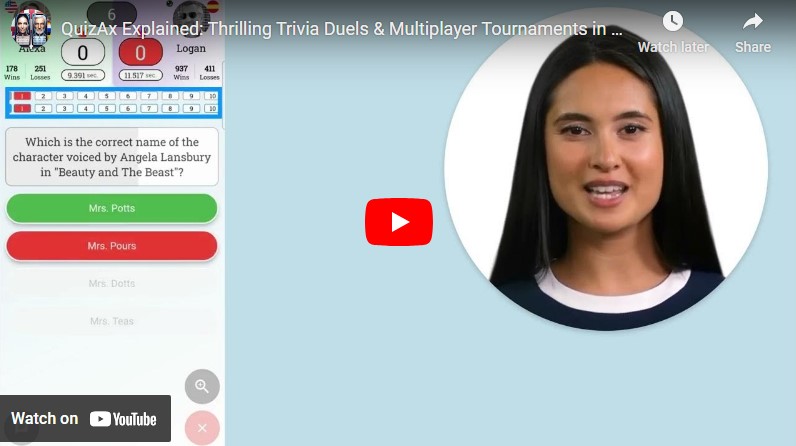
Have you ever wondered what makes trivia games irresistibly captivating? Whether it's a spirited duel among friends, a family gathering around a classic board game, or millions engaging in online trivia apps, the allure of testing our knowledge spans across all ages and cultures. This fascination isn't just about the thrill of competition or the joy of learning; it's deeply rooted in our psychology and the fundamental way humans interact with the world.
Quiz games, ranging from quizzes on history and geography to challenges about science, space, literature, and art, offer a unique blend of entertainment and education. They are not merely a pastime but a dynamic way to engage our brains, connect with others, and even boost our IQ. With the advent of digital platforms, accessing these contests has become easier than ever, allowing for free participation in a global trivia competition from the comfort of our homes.
But what exactly is the science behind our love for trivia? It turns out, the answer involves a mix of cognitive stimulation, social bonding, and the innate human desire for competition and achievement. This article delves into the psychological appeal of trivia games, explores their evolution from ancient times to the digital age, and highlights their educational value and ability to bring people together.
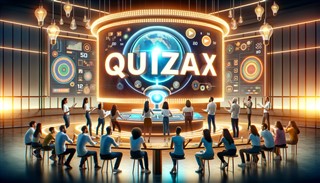
So, grab your favorite QuizAx trivia app, gather your friends or family, and join us as we explore the fascinating world of quiz app. Prepare to challenge your mind, learn intriguing facts, and understand why these activities have become a beloved global phenomenon.
Why do trivia and quiz duels have such a magnetic pull on our attention? The answer lies deep within our psychology and the way our brains are wired. Trivia battles are not just a source of amusement; they're a gateway to mental fitness, offering cognitive benefits that can enhance our daily lives.
Engaging in quiz games is like taking your brain to the gym. Each question challenges your mind, prompting you to recall information from the vast recesses of your memory. This mental exercise strengthens neural pathways, making it easier for you to retrieve information in the future. It's a workout that spans various subjects—from the wonders of space to pivotal moments in history, the intricacies of art, and beyond. Such a broad spectrum of topics ensures that your brain gets a well-rounded workout, improving your memory, focus, and problem-solving skills.
Trivia duels have a unique way of bringing people together, whether it's a family game night or a competitive duel among friends on a multiplayer app. This social interaction is not just about fun; it's a form of learning and connection. Discussing questions, debating answers, and sharing in the excitement of competition foster a sense of community and camaraderie. It's a phenomenon that transcends age, making trivia a popular activity among all generations. The shared experience of learning new facts about geography, science, or literature can spark meaningful conversations and deepen relationships.

The competitive element of trivia games serves as a powerful motivator. The desire to win, whether in a friendly family competition or an online multiplayer competition, pushes us to learn and retain new information. This competitive spirit can lead to an increase in IQ over time, as the constant challenge encourages continuous learning and adaptation. The thrill of competition, combined with the joy of learning new facts, creates a rewarding experience that keeps players coming back for more.
At their core, quiz games tap into the innate human desire for growth and learning. They present an endless array of questions that intrigue our curiosity and drive us to discover more about the world and ourselves. The instant feedback loop of guessing and then immediately finding out if you're correct offers a satisfying sense of accomplishment. It's this blend of challenge, learning, and social interaction that makes trivia battles a beloved hobby for many.
In essence, the psychological appeal of trivia games is multifaceted. They stimulate our brains, strengthen our bonds with others, and satisfy our competitive urges, all while teaching us about the vast world around us. It's no wonder that trivia games, from free apps to online platforms, have cemented their place in our hearts and minds as a source of endless entertainment and learning.
Trivia games are not a modern invention; their roots can be traced back through the annals of history, evolving from ancient quizzes and competitions to the digital duels we enjoy today. This journey from past to present reveals much about human nature and our insatiable thirst for knowledge and competition.
The tradition of testing knowledge through questions and answers is as old as civilization itself. Ancient Greeks and Romans engaged in spirited debates and question-based games that tested their knowledge of philosophy, literature, and the sciences. These early forms of trivia were not only a means of entertainment but also a way to cultivate wisdom and rhetorical skill among the populace.

In medieval times, trivia contests took on a more formal structure, often held in public squares or during feasts, focusing on topics like history, geography, and the natural world. These gatherings were crucial in spreading knowledge during periods when books were scarce and literacy rates were low.
The modern era of knowledge competitions began to crystallize in the 20th century. Board activities like Trivial Pursuit seized the public's imagination, transforming a casual hobby into a worldwide sensation. The success of these activities stemmed from their ability to encapsulate a broad spectrum of subjects—art, science, literature, and beyond—into a format that was both accessible and delightful for people everywhere.
With the progression of technology, these knowledge challenges shifted from physical boards to the digital sphere. The inaugural online platforms and applications for knowledge challenges introduced new avenues for interaction, enabling individuals from all corners of the globe to measure their intellect against one another. The emergence of online multiplayer environments and complimentary applications made knowledge challenges widely accessible, allowing anyone with an internet connection to engage and compete.
Iconic competitions like Jeopardy! and Who Wants to Be a Millionaire? brought trivia into the living rooms of millions, turning knowledge into a spectator sport. These shows highlighted the excitement of trivia competition, making celebrities out of ordinary people with extraordinary knowledge. Their format—a mix of general knowledge questions and high-stakes gameplay—proved to be a winning formula, influencing countless trivia games that followed.
The digital age has seen the rise of trivia apps that offer a more personalized experience. Players can now engage in duels, participate in worldwide competitions, and connect with friends and family over shared interests. These apps have introduced new dynamics to trivia gaming, such as time-limited questions and social media integrations, keeping the genre fresh and engaging.
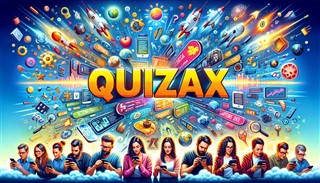
The enduring popularity of trivia games lies in their ability to adapt and evolve with the times. From ancient forums to digital apps, trivia has consistently provided a platform for learning, competition, and connection. As we continue to seek new ways to challenge ourselves and connect with others, trivia games stand as a testament to our collective curiosity and competitive spirit.
The leap of trivia games into the digital realm marks a significant evolution in the way we engage with this form of entertainment. This digital transformation has not only made quiz more accessible but has also introduced innovative ways to play, learn, and connect with others worldwide.
The transition from board games and televised quizzes to digital platforms was spurred by the advent of the internet and the proliferation of smartphones. Early online trivia duels were simple, text-based formats that allowed users to answer questions on various topics. However, as technology advanced, so did the complexity and appeal of these games. Today's trivia apps offer a rich multimedia experience, with vibrant graphics, sound effects, and interactive elements that make the match more engaging than ever before.
The proliferation of smartphones has been a game-changer for quiz enthusiasts. Free trivia apps have democratized access to quiz games, allowing anyone with a mobile device to participate in trivia duels, join multiplayer challenges, or simply test their knowledge in solo play. These apps cover a wide range of subjects, from history and science to geography, literature, and art, ensuring there's something for everyone.

One of the key features of modern trivia apps is their ability to connect players from around the globe. Multiplayer modes allow friends and family to compete against each other, regardless of physical distance. Moreover, online competitions bring together people of all ages and backgrounds, fostering a sense of global community centered around a shared love for mind battles.
The digital revolution has also introduced new gameplay mechanics that were previously unimaginable. Time-limited questions, lifelines, and power-ups add an extra layer of strategy and excitement to the recreation. Social media integration allows players to share their achievements, challenge their friends, and even participate in worldwide leaderboards.
Artificial intelligence and machine learning are now being leveraged to personalize the trivia experience further. Algorithms analyze players' performance to adjust difficulty levels, recommend categories of interest, and ensure that questions remain challenging yet achievable. This personalized approach keeps the game fresh and engaging, encouraging players to keep learning and improving.
Beyond entertainment, digital trivia applications have found a place in educational settings. Educators are using quiz apps as a tool to make learning more engaging for students. By gamifying the learning process, students can explore subjects like literature, geography, and science in a fun and interactive way. This approach not only enhances knowledge retention but also fosters a love for learning that transcends the classroom.
The digital revolution has transformed trivia games from a static quiz format into an interactive, global phenomenon. With the advent of free, accessible, and highly engaging trivia apps, the game has reached new heights of popularity. As technology continues to evolve, so too will the ways in which we engage with quizzing, ensuring that this age-old form of entertainment remains a beloved pastime for generations to come.

The gamification of education has been a significant trend in recent years, with trivia games at the forefront of this movement. By turning learning into an engaging, competitive, and fun activity, trivia games have demonstrated considerable potential in enhancing educational outcomes.
One of the most compelling aspects of using trivia games as an educational tool is their ability to increase engagement and retention of information. Subjects like history, science, geography, literature, and art become more accessible and interesting when presented in a quiz format. This interactive approach caters to various learning styles, allowing students to absorb and retain information more effectively than through traditional teaching methods.
Research has shown that the challenge of answering questions and the immediate feedback provided by trivia games can significantly enhance memory retention. The excitement of competition, whether against oneself or others, motivates learners to focus and engage deeply with the material, leading to better learning outcomes.
Educators are increasingly incorporating trivia games into their teaching methodologies, recognizing their value in stimulating students' interest and participation. Trivia can be used to introduce new topics, review previously covered material, or as a lively break from conventional classroom activities. With the availability of online platforms and apps, it's now easier than ever for teachers to integrate trivia into their lesson plans, whether in person or in virtual learning environments.
Beyond the classroom, trivia games are used in professional settings for training and development. Companies leverage trivia quizzes to educate employees on company policies, industry knowledge, and skill development. This approach not only makes learning more enjoyable but also fosters team building and camaraderie among colleagues.
Several studies and real-world examples highlight the effectiveness of trivia games in educational settings. For instance, a university might use trivia apps to help medical students memorize complex anatomical terms and concepts, making the daunting task of studying more interactive and enjoyable. Similarly, language learners often use trivia games to practice vocabulary and grammar in a fun, stress-free environment.

These case studies demonstrate that when educational content is delivered in a trivia format, students are more likely to engage with the material, participate actively, and retain information for longer periods. This innovative approach to learning has the potential to transform educational outcomes across various disciplines and age groups.
Trivia games have proven to be more than just a source of entertainment; they are a dynamic and effective educational tool. As technology continues to advance, the potential for data to enhance learning and development is boundless. By making education engaging, interactive, and fun, trivia games hold the promise of fostering a lifelong love for learning in people of all ages.
Trivia games transcend mere entertainment, acting as powerful conduits for social interaction and community building. In a world where digital connections often replace physical ones, information offers a unique blend of competition, learning, and socialization that brings people together, both online and offline.
Online trivia games have created global communities of like-minded individuals who share a love for knowledge and competition. These platforms offer a space where players can engage in friendly competition, challenge each other, and celebrate shared achievements. The competitive aspect of trivia, whether in multiplayer modes or online duels, serves as a catalyst for interaction, allowing players to connect over shared interests and engage in meaningful exchanges.
These communities often extend beyond the game itself, with players forming friendships, creating trivia leagues, and even organizing in-person meetups. Such is the power of quiz to create a sense of belonging and community among participants from diverse backgrounds and geographies.
Trivia games also play a significant role in strengthening bonds among friends and family. In a family setting, trivia nights can become a cherished tradition, offering a fun and educational way to spend time together. These games span a wide range of topics, making them accessible and enjoyable for all ages, from children learning about space and science to adults brushing up on history and literature.
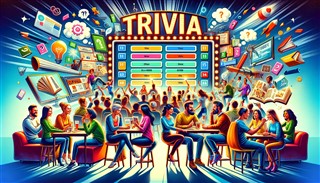
In the digital age, trivia apps have made it easier for friends and families separated by distance to stay connected. Online games allow individuals to compete against each other, share results, and even learn together, regardless of where they are in the world. This virtual connection through shared interests and friendly competition can help maintain and strengthen relationships over time.
Social media has amplified the social aspects of trivia games, enabling players to share achievements, challenge friends, and join larger communities of trivia enthusiasts. Platforms like Facebook and Twitter have become arenas for quiz challenges, where users can post questions, share scores, and engage in discussions about various topics. These interactions not only enhance the gaming experience but also foster a sense of camaraderie and collective learning among participants.
There are countless stories of people who have formed lasting friendships, reconnected with old acquaintances, or even met significant others through trivia games. These personal anecdotes highlight the game's ability to bring people together in meaningful ways. Whether it's a group of friends who met through an online quiz league or a family that has bonded over weekly trivia nights, the impact of these duels on social relationships is profound and far-reaching.
In conclusion, trivia games are much more than a test of knowledge—they are a means of building and nurturing connections. By fostering community, bringing friends and family closer, and facilitating social interactions, trivia apps have proven to be a valuable social network in their own right. As technology continues to evolve, the potential for trivia to unite people, regardless of their location or background, is limitless. In the end, the enduring appeal of trivia games lies not just in the thrill of competition or the joy of learning but in their power to connect us with others in a deeply meaningful way.
As we've navigated through the history, appeal, and impact of trivia games, it's clear that they are more than just a source of entertainment. They embody the human spirit of curiosity, the joy of learning, and the innate desire for social connection. Trivia games have evolved from simple question-and-answer sessions in ancient times to sophisticated digital platforms that unite millions of players across the globe.
Trivia games have left an indelible mark on our culture, serving as a testament to the endless human quest for knowledge. They challenge us to broaden our horizons, encouraging us to learn about diverse topics—from the mysteries of the universe to the intricacies of human history and the wonders of art and science. This legacy of learning and curiosity is perhaps the most significant contribution of trivia games to our society.

Looking ahead, the future of trivia games is bright and boundless. With advancements in technology, we can anticipate even more innovative ways to play, learn, and connect. Augmented reality (AR) and virtual reality (VR) could offer immersive trivia experiences, placing players in historical events or scientific explorations. Artificial intelligence (AI) will continue to personalize and enhance the trivia experience, making plays more engaging and educational.
Moreover, as global connectivity improves, trivia games have the potential to become more inclusive, bridging cultural and linguistic barriers. We can envision a future where trivia games contribute to global understanding and unity, celebrating the diversity of human knowledge and experience.
In light of the immense value and potential of quiz contests, it's an opportune time for players, developers, educators, and communities to embrace and promote this form of entertainment. Whether it's by participating in quiz nights, developing innovative quiz apps, utilizing quizzes as a teaching tool, or simply sharing knowledge with others, we all have a role to play in the ongoing narrative of quiz contests.
Let's continue to celebrate the joy of learning, the thrill of competition, and the power of community that quiz contests bring into our lives. The question is not just about who knows the most but about how we can learn and grow together through the shared experience of quizzes. In conclusion, quiz contests are a celebration of human curiosity and connection. As we look to the future, let us carry forward the legacy of quizzes, fostering a world where knowledge and community go hand in hand, and the game never ends.